 |
Thailand lost 1-3 to Turkmenistan. |
In theory, Group D of the final qualifying round for the 2027 Asian Cup for Thailand is not too fierce. The opponents of the "War Elephants" are only Turkmenistan and Sri Lanka, with only Taiwan (China) - the team considered the weakest in Asia - remaining. But reality is revealing a harsh truth: Thailand can no longer maintain the "big" position it once had.
Thailand faces difficulties in a group without "big guys"
The 2-0 victory over Taiwan on the evening of October 9 was a necessary result, but it was not convincing. Throughout the first half, coach Masatada Ishii's team was almost deadlocked by the opponent's crowded defense. It was not until the beginning of the second half that they opened the score thanks to a header from substitute Seksan Ratree, and then had another goal to seal the score after an impromptu move by captain Chanathip Songkrasin. It was a match in which Thailand controlled the ball a lot, continuously pressed, but lacked breakthroughs - something rare for a team that prided itself on technical and fast play.
Previously, Thailand suffered a 1-3 defeat against Turkmenistan and only barely beat Sri Lanka 1-0 at home. With only 6 points after three matches, Thailand dropped to third in Group D after Sri Lanka surprisingly defeated Turkmenistan 1-0. All three teams now have 6 points, but Thailand is behind due to a head-to-head difference (-1 compared to 0 for Sri Lanka and +1 for Turkmenistan).
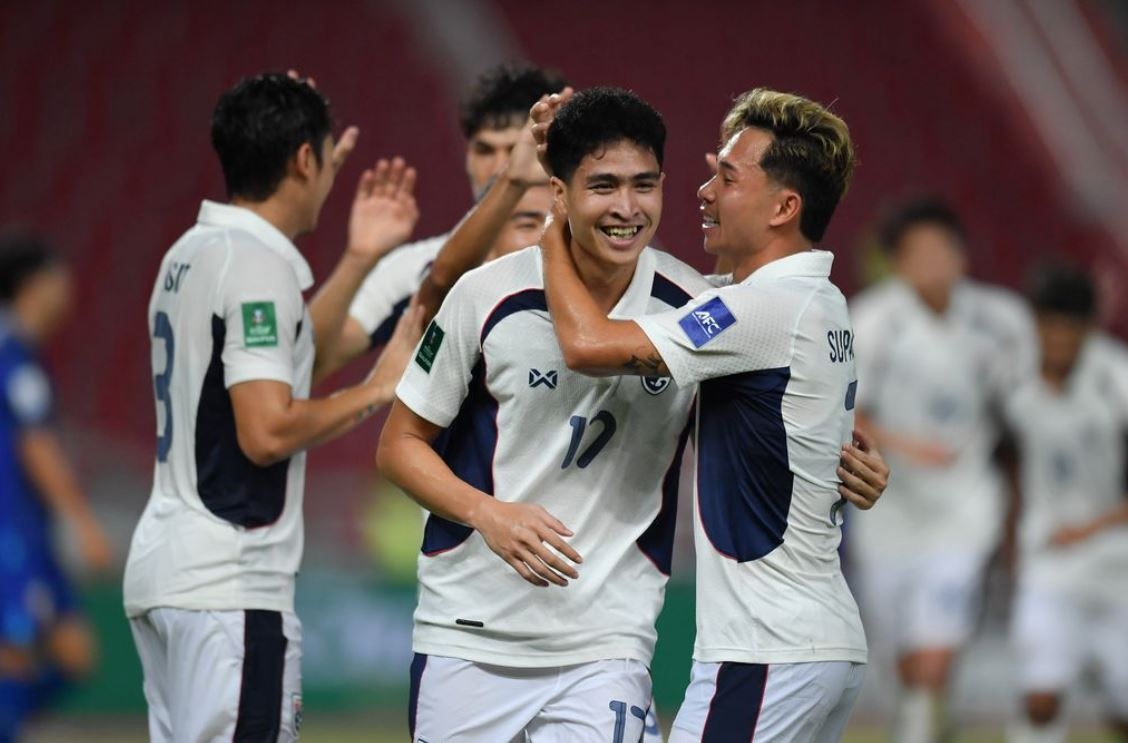 |
Thailand narrowly beat Taiwan (China) at home. |
It is even more worrying that the Thai team has finished two home matches in the first leg without creating an advantage. In the second leg, the Thai team only has one home match left, against Turkmenistan - an opponent who beat them 3-1 - and the remaining matches are away matches against both Sri Lanka and Taiwan. Among them, Sri Lanka is gradually becoming a phenomenon in the group, when thanks to the naturalization policy, they have a strong force and play disciplined football.
If before, Thai fans thought that the match against Turkmenistan was the key to getting a ticket, now they need to consider the away match against Sri Lanka, and even the match in Taipei.
The general decline of Thai football
More broadly, the national team’s inconsistent form is just the tip of the iceberg: Thai football is entering a cyclical crisis. From being the regional leader for two decades, they are gradually being overtaken by Southeast Asian rivals – especially Vietnam and Indonesia.
After two consecutive AFF Cup championships in 2020 and 2022, Thailand lost to Vietnam at the AFF Cup 2024 - a shock to the country's fans. In the two qualifying campaigns for the 2022 and 2026 World Cups, the "War Elephants" could not go far, despite having stars like Chanathip, Theerathon or Supachok. Coach Masatada Ishii, who was expected to bring a new breeze from Japan, has not left any outstanding mark so far except for the King's Cup 2024 title - a friendly tournament.
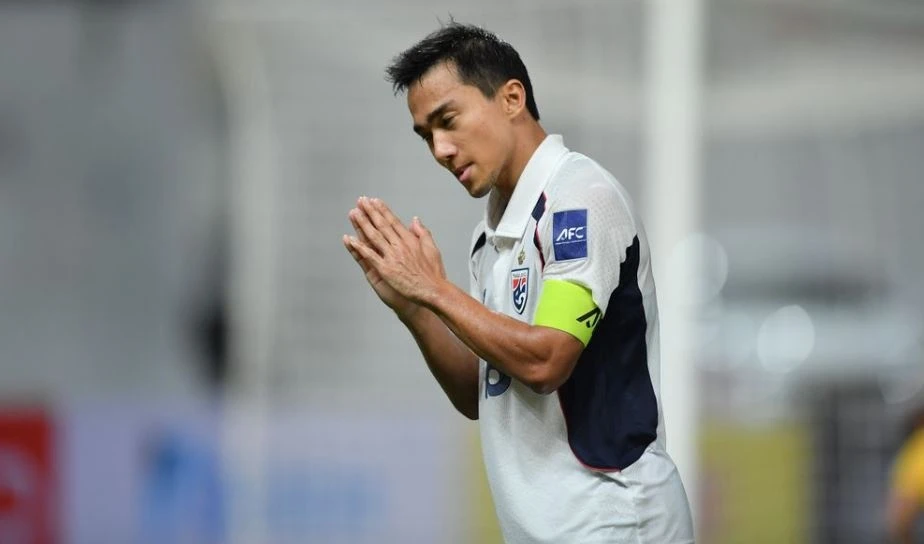 |
Chanathip is 32 years old. |
The underlying cause lies in the quality of personnel. The current generation of Thai players is no longer at the same level as the ones who played in Japan and Korea in the previous decade. If in the past, the Thais could be proud of Chanathip Songkrasin, Theerathon Bunmathan, or Teerasil Dangda who regularly played in J.League 1, the squad called up this time only has Supachok Sarachat, who is playing for Hokkaido Consadole Sapporo in J.League 2. Only Poramet Arjvirai is absent due to injury.
In addition, there is also a naturalized player playing in Europe, Nicholas Mickelson. But he only plays for Elversberg in the German Second Division and is not a mainstay. The quality of naturalized players in Thailand is far behind that of Indonesia because the Indonesian overseas community is very large due to historical factors.
Therefore, Indonesia can follow the path of massive naturalization of players of Dutch, English, Belgian and Spanish origin legally. That will help them have a squad that can compete at the continental level.
Vietnam is determined to develop youth football, creating a continuous generation of players. Thailand, despite having a good training foundation, is struggling with the generational transition. Chanathip - the symbol of success of contemporary Thai football is 32 years old. Finding successors under 25 is increasingly difficult. Thai youth football is facing problems even in regional tournaments.
At the SEA Games, Thailand has failed to win a gold medal for three consecutive times - a rarity in history. In the U23 Southeast Asia, Vietnam won a hat-trick of championships while Thailand has gone 4 consecutive times empty-handed. Famous academies such as Muangthong, Buriram or Chonburi no longer produce breakthrough talents like before. The Thai League competition system is increasingly uncompetitive as clubs rely on foreign players, causing domestic players to lose their training ground.
"War elephants" no longer threaten anyone?
In terms of mentality, the “War Elephants” no longer have the confidence that was once their trademark. When facing regional teams such as Vietnam, Indonesia or Malaysia, Thailand no longer has a clear superior position. Regional teams, including the Philippines, no longer have the mentality of being afraid and cowering when facing Thailand.
Thailand’s decline is not just a matter of a few games, but a sign of saturation after a period of success. Thai football was once ahead of the region in terms of professionalisation, but is now lagging behind in innovation. To regain its position, they need a comprehensive “reboot” – from reforming the youth system, investing in fitness and sports science , to shaping a modern playing identity.
If they cannot do that, the “War Elephants” may forever remain just a nostalgic name - once a symbol of Southeast Asia, but gradually being left behind in the increasingly fierce race of continental football.
Source: https://znews.vn/vi-sao-doi-tuyen-thai-lan-sa-sut-the-nay-post1592544.html



![[Photo] Opening of the World Cultural Festival in Hanoi](https://vphoto.vietnam.vn/thumb/1200x675/vietnam/resource/IMAGE/2025/10/10/1760113426728_ndo_br_lehoi-khaimac-jpg.webp)
![[Photo] Ho Chi Minh City is brilliant with flags and flowers on the eve of the 1st Party Congress, term 2025-2030](https://vphoto.vietnam.vn/thumb/1200x675/vietnam/resource/IMAGE/2025/10/10/1760102923219_ndo_br_thiet-ke-chua-co-ten-43-png.webp)


![[Photo] Unique Phu Gia horse hat weaving craft](https://vphoto.vietnam.vn/thumb/1200x675/vietnam/resource/IMAGE/2025/10/10/1760084018320_ndo_br_01-jpg.webp)






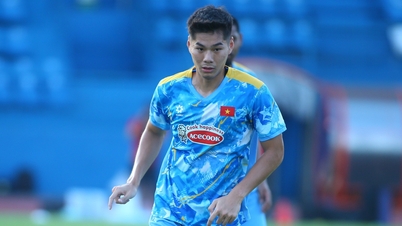






























































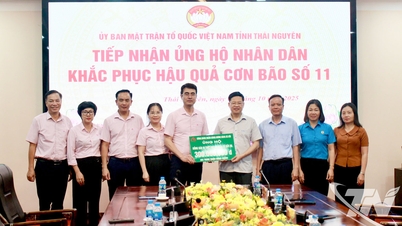



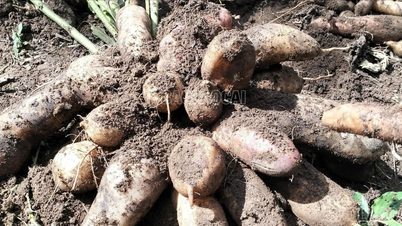
















Comment (0)